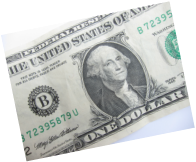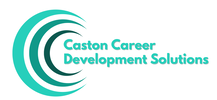 All of your hard work updating your resume, applying for jobs, etc. has finally paid off - and now you've got an interview. You're feeling happy to have gotten a call back about a job that you're really interested in, and really excited to have an interview. But now, you are becoming nervous as your interview approaches. What do you talk about? How should you speak about your work history and experiences? One of the most important things your should do at this point is CALM DOWN and RELAX (and do this throughout your interview as well - it will really make a difference). Now, here are 3 tips to help you prepare for your upcoming interview. 1. Incorporate the STAR technique into your interview During your interview, you can almost guarantee that you will be asked several behavioral interview questions. A behavioral interview is an interview technique that is used by employers/recruiters/hiring managers to get candidates to elaborate more on their responses by discussing specific situations that support their previous experiences. To prepare for behavioral interview questions, the STAR technique is a great tool to use to help walk you through your answer. STAR stands for Situation, Task, Action, and Result. When answering behavioral interview questions, simply provide your response in order of the STAR technique. Situation - Describe the situation or event that you were faced with or encountered. This may have been a problem or a project that was given to you to handle. Make sure you provide your interviewer with a detailed explanation of the situation to help them understand it thoroughly. Remember - they weren't there with you, so be descriptive, but not long-winded. Task - After you describe the situation, describe what tasks or steps needed to be completed in order to handle the situation. Think of this step in comparison to describing the steps to carry out a cooking recipe. Action - Now that you have described the situation and task(s), describe to the interviewer what actions you took to complete the tasks. Don't get caught up on what other members of your group, team, etc. did - make sure to focus on what YOUR actions were specifically. Keep in mind, the interviewer isn't interviewing your team or group - they are only interviewing YOU. So, continue to focus on describing what your specific actions were to complete the tasks at hand. Result - After describing the situation, tasks, and actions, wrap up your response by describing the result of your work. What impact did you actions have to complete the tasks in the particular situation you described? Make sure to focus on what you accomplished, and quantify your response if possible. 2. Use Your Resume As Your "Cheat Sheet" If written well, your resume will be your best "helper" through your interview. Not only have you (hopefully) catered your resume to the position that you're interviewing for, but you hopefully have also written about specific situations and accomplishments that you will also discuss during your interview. If written well, you would have already written your task statements to serve as "notes" throughout responding to behavioral interview questions. 3. Prepare Well Thought Out Follow-Up Questions Many people skip over this step when preparing for the interview. However, by really putting effort into thinking about thoughtful interview questions, it shows your interviewer that you have conducted research on the company and job, and because of your insight - can bring great ideas to the table! Good luck on your interview, and go GET THAT JOB!!!
1 Comment
 "What is your greatest weakness?" This is one of the most DREADED interview questions (well, at least to me it is). When does anyone ever want to intentionally tell someone about their greatest shortcomings are as an individual, or as a professional. Well, the important thing to note here is that your interviewer is not really trying to nit-pick and find out everything bad about you. Instead, what your interviewer is really trying to do is assess how you manage, or make efforts to overcome and improve your weakness. Check out this VERY informative article that is featured on Best-Job-Interview.com titled Interview Questions Weaknesses. They've got a great chart that lists out various weaknesses, how they can be perceived in the workplace, and how they can be positively managed.  Depending on how long you’ve been in the thick of your job search, you may have reached what I call your “pseudo job search breaking point.” We’ve all been there. This period comes about after you have applied for every job in your field (at least that’s what it feels like), and now you just simply want a job –ANY job! At this point, you’re just ready to get back into the swing of having a job, just like everyone else seems to have and bring home a steady paycheck! Low and behold, you come across a job posting that seems PERFECT for you, and you are gung-ho about applying. Before you start filling out that online application, take a moment to consider if this seeming “dream job” is your version of utopia, or in reality, a potential nightmare. Here are 4 things to consider before applying to any job: 1. Is the position description interesting to you? Yes, you may have completed the type of work listed as job duties in your previous roles, but it doesn’t mean you liked it and want to continue doing it in the future. If the job description doesn’t really interest you, don’t apply. You don’t want to end up in a new position you hate – that would be annoying! 2. Is the position located in an ideal location? Let’s say you review the job description and it peaks your interest. But, you notice that the position is based 50+ miles away from your home… that SUCKS! If you hate traffic, ever-rising gas prices, and you actually have a life outside of work, you may want to reconsider applying for this position. For some, the commute may be worth it (hey – I’d travel far and wide to work for a company like Google). If the position is too far for your liking, consider finding out if the company has offices closer in proximity, or telecommuting options (that would be wonderful). But, consider the location of all positions… you just may find that the location is a deal breaker.  3. Does the pay meet your financial needs? Sure, many job postings don’t include salary information these days. But, if you’re willing to do a little digging, you may be able to at least come up with a ball park salary range for the position before applying. Check out Glassdoor or Salary.com. Glassdoor allows current and previous employees to post reviews about companies, and sometimes they post their salaries for various positions. Salary.com provides users with the average salary of various job titles (they even use geographic location to determine averages). It’s a great tool to use when providing salary expectations to employers (I personally hate that question – your response can potentially take you out of the running for a position). After you conduct your salary research you find that the potential pay isn’t going to help you get back on your feet financially, you may want to reconsider applying. 4. Does the company culture match up with your work style?
Not many people consider how a company’s work environment will affect them as employees. So, take the time to do more research about the company’s beliefs, work habits, culture, etc. Check out their website and see what they have to say. Again, this is another great opportunity to use Glassdoor to find out what other employees have to say about the company and their experiences as employees. Some companies, such as Salesforce, Whole Foods Market, and The Container Store, have it clearly stated on their website in the Careers section. If it sounds appealing to you – go for it! But if something stands out as a red flag, keep that in mind when deciding whether or not you’re going to apply. CNN Money has published a pretty extensive list about the 100 Best Companies to Work – your dream job may be with one of those companies! The Ladders has a great list of questions that you can use during an interview to find out more about a company’s culture – check it out and see how you can incorporate them into your next interview. Dream jobs… do they exist? Sure they do, you just have to look for them! What other reasons do you think are debatable when thinking about applying for a job? So, you've read about writing the “perfect resume." You think you've incorporated every tip, suggestion, etc. and still have find a way to successfully convey all of your professional and educational experiences. You've even managed to keep your resume under 2 pages. It's your best resume EVER! Or so you think... The reality is that while you've finally completed your most thorough resume to date, it doesn't tell employers anything about WHAT you've successfully accomplished, and HOW you've accomplished it. So how do you go back to the drawing board and really make sure you sell yourself as the best candidate with your resume? 1. Include your accomplishments. Everyone (hopefully) has successfully reached at least one milestone in their place of employment. Everyone also has had to solve at least one problem in the workplace. Well now's the time for you to shine by describing how you did that, and share how it benefited your employer. Try using the PAR technique (P-problem, A-action, R-result) to write the perfect statement that describes that accomplishment. 2. Quantify your accomplishment(s). No, that doesn't mean tally up all of the accomplishments you've ever had. Instead, take some time to really think about significant outputs to your employer that was a direct result of your work. Maybe you developed a new review process that resulted in your department decreasing spending by $10k throughout the year. That's a great and quantifiable accomplishment. Hey, what company doesn't want to figure out ways to spend less? Spending less = more profit! 3. Showcase your accomplishments. Now that you've written several awesome PAR statements, and you've quantified your accomplishments, make sure they stand out in your resume. Don't bury those impressive accomplishments at the bottom of your bullet points - employers may never see them! Instead, take a page from the “functional resume handbook" and work on grouping your major accomplishments with supporting task statements that relates back to certain skills sets. Ex. Revitalized declining strategic partnerships with corporate sponsors by facilitating quarterly site visits to develop long-term communication plans that increased programing approvals by 40% ·Collaborated with agency directors to schedule in-person site visits and develop meeting agendas ·Analyzed complaints from corporate sponsors to identify gaps in service and to develop collaborative solutions What other ways can you successfully convey to a potential employer what you are actually capable of doing? Leave a comment and help out your “job search colleagues!"
To learn about job opportunities, why not try to conduct your job search on Twitter? While many may never think about doing anything other than tweeting about the most recent thing/person that irked your nerves, it actually can be a great resource in finding out job openings in your field instantly. Step away from your Twitter account for just a second and read about 50 ways to use Twitter in YOUR job search!
50 Ways To Use Twitter as a Job Search Tool Check out this online article, written by Susan Adams for Forbes.com about writing a thoughtful cover letter. You can also click this link [http://blogs.forbes.com/susanadams/2011/03/24/how-to-write-a-cover-letter/] to read more and follow Susan.
How To Write A Cover Letter, by Susan Adams When a friend of mine – I’ll call her Carol – asked me to help with a job cover letter last weekend, I said sure, piece of cake. I write and edit for a living. How difficult could it be to fix a page of my friend’s prose? Painfully difficult, it turns out. I spent hours sweating over Carol’s letter, and even then I didn’t feel I had cracked it. The first line stumped me, and still does. “I am very pleased to submit my application,” she began. That seemed awfully stiff, and besides, the company she was addressing would be lucky to hire her. But my alternative was too informal, and possibly overconfident: “I would be thrilled to become . . .” For help, I combed through the web and turned to three of my job coach sources. I found lots of horribly written letters (“As a highly skilled sales manager with proven experience . . .”) and some difference of opinion. My conclusion: Cover letters make a difference, even short ones. Don’t ever send a boilerplate “Enclosed please find résumé” note. Do tell a story and even crack a joke if you can. Always mention mutual contacts, and make sure you proofread carefully. Even though today’s cover letter is always an e-mail with a résumé attached, as opposed to a hard copy sent by snail mail, do err on the side of a more formal prose style, avoiding common e-mail abbreviations like “u” instead of “you.” In Pictures: How To Write A Cover Letter That said, New York City job coach Roy Cohen, author of The Wall Street Professional’s Survival Guide, and Marcie Schorr Hirsch, of Hirsch/Hills Consulting, in Newton Centre, Mass., both favor short letters of less than a page. The two agree that the larger the company, the less important the letter. “A brilliant letter that’s a response to a job posting may not make a difference,” Cohen says. “In an overburdened workplace, it’s less likely that that letter will get a lot of attention.” Hirsch and Cohen both like letters that start by spelling out what job you’re trying to get, including the name of the company, followed by a summary of your career, a list of your relevant accomplishments and then a last line that requests a meeting and says when you plan to get in touch. “Wall Street has a short attention span,” says Cohen. “Simple is the way to go.” Still, it’s tough to write a great opening line, even in a short letter. The magic bullet: Naming someone you know in common: “Carol McGillicutty recommended I get in touch about the sales manager job at Adams & Co.” But what do you say if you can’t say that? In search of great prose ideas, I tried the writing guru William Zinsser, former master at Yale’s Branford College and author of the much-read book On Writing Well. Zinsser’s first response: “I think the business world is so uptight and so competitive, they might not want any of the kind of humanity I’m proposing.” Zinsser doesn’t like my “thrilled” opening line at all. “It’s kind of a false ingratiation,” he points out. “I think storytelling is good,” he suggests. “If you have some anecdote—’An uncle of mine once said,’” he suggests. Or, “One reason I want to work for you is I always remember something my father told me.” My conclusion: Zinsser is right that storytelling is a great tactic in a cover letter. But it’s also a tall order for most of us. Instead, I’d recommend either the short, succinct approach proposed by Hirsch and Cohen or the four-paragraph format suggested by Kate Wendleton, founder and president of the Five O’Clock Club, a 32-year-old national career coaching organization based in New York: The first paragraph lays out the specific job you want and, in the best case, names a mutual acquaintance. If you’re approaching the person out of the blue, take a look at this piece I wrote on direct contacts. You might say you’ve been following the person’s career for a long time, or you recently read about her in Forbes, and then say why you want to pursue a position at the company. In the next paragraph, write a short summary of your career, tailored to fit the company you’re approaching. In the third paragraph, lay out several specific accomplishments that are relevant to the prospective job. Wendleton likes to do this in bullet form. Put your most impressive accomplishment first, she emphasizes. In the fourth paragraph, say when you’ll be getting in touch. My attempt to help Carol happened before I researched this article, and I’m happy to say we did most of what Wendleton recommends, though we didn’t use bullets. Carol herself has hired a number of people over the years, and she has some recommendations: Don’t say you’d make a perfect member of the team, unless you can back that up with specific achievements. Keep the superlative adjectives to a minimum. Do tailor your letter to the position, but don’t copy the exact wording. “I hate it when people say ‘I’d love to’ and then cut and paste a line from the job description,” she says. I’ll conclude with two cover letter examples. The first one I found on aHarvard Business Review blog written by someone named David Silverman, who teaches business writing. It’s quite short, and it doesn’t spell out specific accomplishments, but I think the format is sound, the prose flows nicely, and it refers the reader to the résumé, which presumably lists relevant achievements. Though I’d delete the “I’ve attached my résumé for your review” phrase; the recipient will see the attachment and doesn’t need to be told: I am writing in response to the opening for xxxx, which I believe may report to you. I can offer you seven years of experience managing communications for top-tier xxxx firms, excellent project-management skills, and a great eye for detail, all of which should make me an ideal candidate for this opening. I have attached my résumé for your review and would welcome the chance to speak with you sometime.” Finally, here’s a sample letter provided by Wendleton. I find the prose a little formulaic, but the structure seems good. Also, I’d keep it to four paragraphs, which would mean deleting everything after the last bullet, and ending with, “I’ll call in a few days to see if we can find a time to meet.” Rachel Tepfer suggested I get in touch with you. I am a seasoned financial services marketer at SanguineBank with a strong packaged goods background and extensive experience in product development and merchandising, branch management, electronic banking, and innovative distribution planning. I created the SanguineBank Investment Portfolio, the bank’s first complete presentation of its retail savings and investment products, and developed successful ways to sell the SanguineDip account in the retail setting.
I am seeking to move to a new assignment that would take full advantage of my consumer financial services marketing experience, and am extending my search outside of SanguineBank as well as inside. Rachel thought it would be worthwhile for us to meet briefly. I’ll call in a few days to set up a mutually convenient time for us to meet. I’m looking forward to meeting with you. In Pictures: How To Write A Cover Letter Do you have a suggestion for a great opening cover letter line, or a fabulous sample letter? Please comment, or email me at [email protected]. |
Archives
February 2017
Categories
All
|
Create a free website with Weebly
